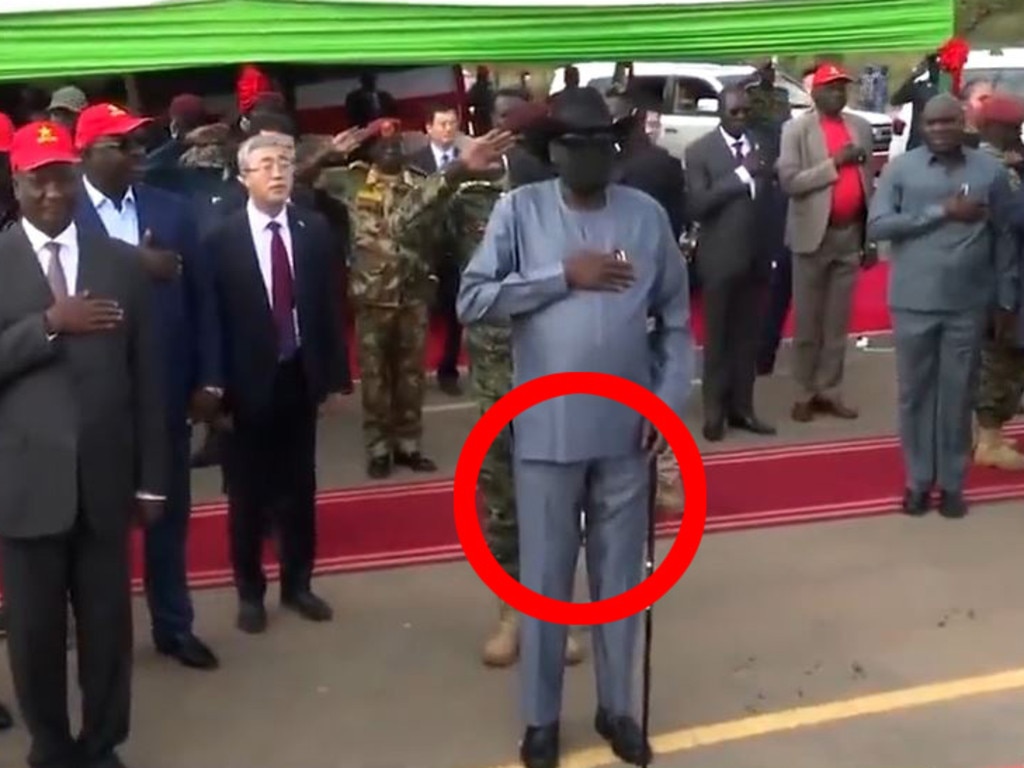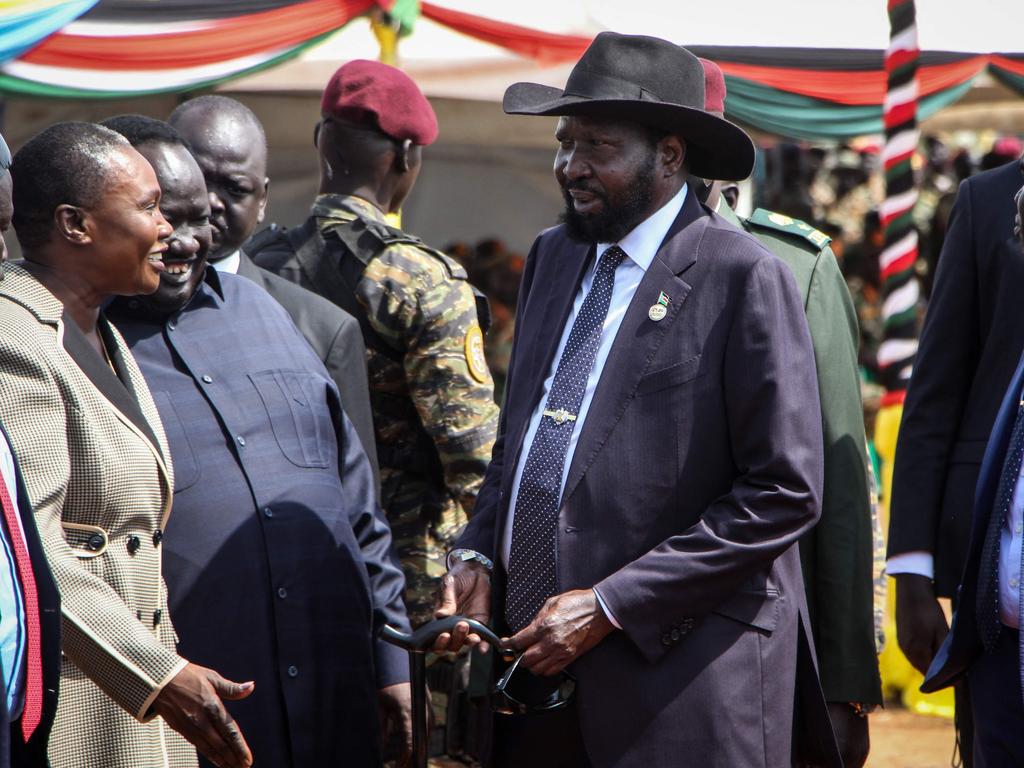
This article is more than
3 year old
Six journalists in South Sudan have been detained over the circulation of footage that appears to show President Salva Kiir wetting himself at an official event.
The footage from December showed a dark stain spreading down the 71-year-old president’s left leg as he stood for the national anthem at a road commissioning event. The video did not air on television, but circulated on social media – where it went viral.
The journalists, who work with the state-run South Sudan Broadcasting Corporation, were arrested on Tuesday by agents from the National Security Service, according to the Committee to Protect Journalists.
Patrick Oyet, president of the South Sudan Union of Journalists, told Reuters they are “suspected of having knowledge on how the video of the president urinating himself came out.”
Kiir has been president since South Sudan gained independence, when it broke from Sudan in July 2011. The world’s youngest country has been embroiled in crisis for much of that time, enduring brutal conflict, political turmoil, natural disasters and hunger.
Government officials have repeatedly denied rumours circulating on social media that Kiir is unwell.

Media rights groups have called for the urgent release of the six journalists, who are camera operators Joseph Oliver and Mustafa Osman, video editor Victor Lado, contributor Jacob Benjamin, and Cherbek Ruben and Joval Toombe from the control room.
Mr Oyet told Reuters he was concerned as they had been detained for longer than is legally allowed. Under South Sudanese law, authorities may only detain suspects for 24 hours before bringing them before a judge.
The arrests match “a pattern of security personnel resorting to arbitrary detention whenever officials deem coverage unfavourable”, said CPJ’s sub-Saharan Africa representative Muthoki Mumo.

“Authorities should unconditionally release these six SSBC employees and ensure that they can work without further intimidation or threat of arrest.”
The Union of Journalists of South Sudan also called for a “speedy conclusion” of the investigation into the six, who it said were suspected of “having knowledge of the release of ‘a certain footage’ to the public”.
“If there is a prima facie case of professional misconduct or offence then let authorities expedite an administrative or legal process to address the issue in a fair, transparent (manner) and in accordance with the law,” it said in a statement on Friday.